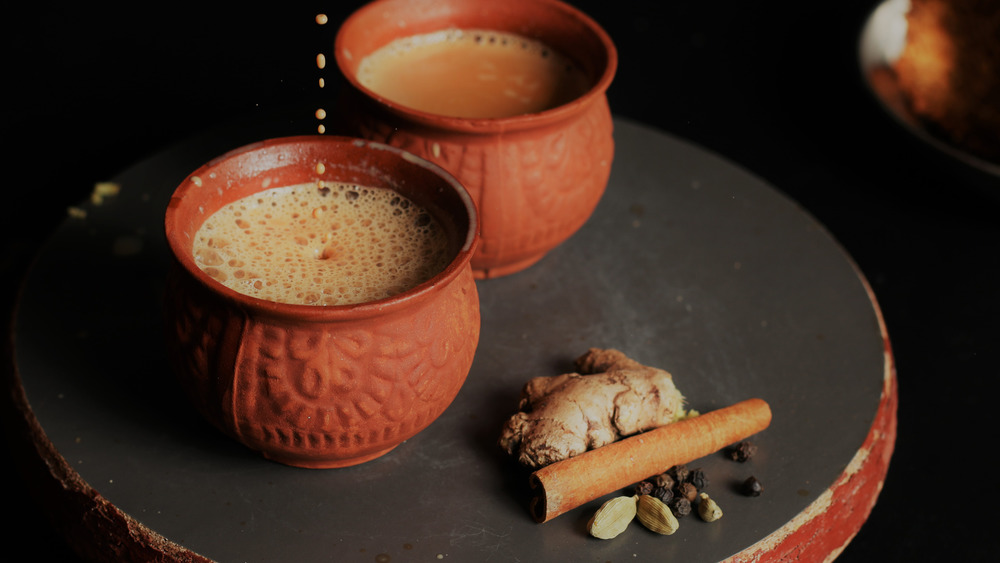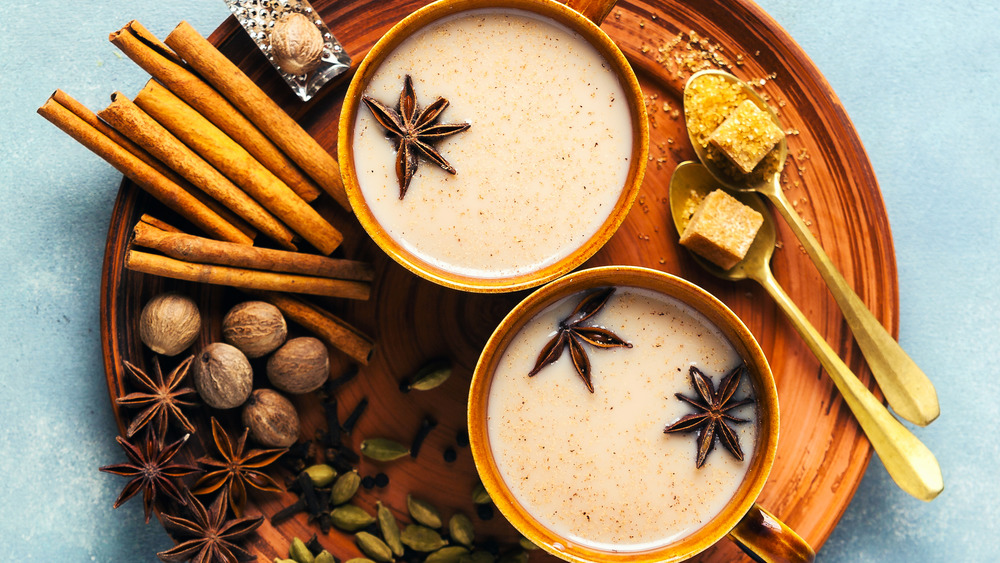Why You Should Drink Chai If You're Trying To Quit Coffee
"Don't talk to me until I've had my coffee" is the rote catchphrase that was (once) commonplace in offices across the land. But would that mantra be as ubiquitous if "coffee'" were replaced with "chai?" Interestingly enough, The Guardian reported in 2016 that only 29 percent of people (!) surveyed in a Mintel study liked the flavor of coffee. Medium, meanwhile, claims that worldwide, chai is second only to water in terms of overall popularity as a beverage. (However, it's worth observing that Medium seems to cite 2012 figures which list preferences for coffee or tea, not chai specifically.)
Chai – which translates to "tea" in India – is typically a mix of black tea with Indian spices, milk, and some sort of sweetener, according to Chai Direct. It is robust, warming, and slightly spicy. If you're getting your chai from Starbucks, it's probably a creamy, sweet concoction that is a bit different than the chai traditionally enjoyed in India, as stated by the Sencha Tea Bar website. The beverage has been enjoyed for both its taste and myriad health benefits for hundreds of years and that some of the traditional spices in chai are cardamom, ginger, black pepper, cloves, cinnamon, and fennel. While usually made with black tea, chai can also be prepared with Rooibos, yerba mate, or green tea. So if you're looking to quit coffee, chai might be a tastier alternative.
Caffeine and health benefits
The Culinary Teas blog states that a serving of chai has less caffeine than a standard serving of coffee and that chai's caffeine content is absorbed more slowly in the body. That could be a good thing. According to Healthline, while 80 percent of the global population drinks caffeine daily, it isn't recommended in large doses, which studies have linked with anxiety, chronic migraines, inability to sleep, and mood problems. It's important to note, however, that the caffeine levels in both coffee and tea partly depend on how they're prepared and the type of tea or coffee. Culinary Teas also claims coffee dehydrates its drinkers whereas tea hydrates them. However, Healthline states that neither option is likely to dehydrate you.
Similar to coffee, regular consumption of tea, such as chai, has also been associated with a range of possible health benefits, including increased attention/focus, cardiovascular health, and maybe even protection against Alzheimer's and Parkinson's. The Sencha Tea Bar website states that chai contains spices that might help with digestion, nausea, aches and pains, general immune system support, cell health, and the prevention of chronic disease. Beyond possibly being good for you health-wise, chai might be preferable environmentally because it calls for much less water than coffee.
If you're unsure about deciding between coffee and chai — ask yourself, "Why not both?" The Spruce Eats writes all about the "dirty chai," which is a combination of both chai and espresso. Happy sipping!

